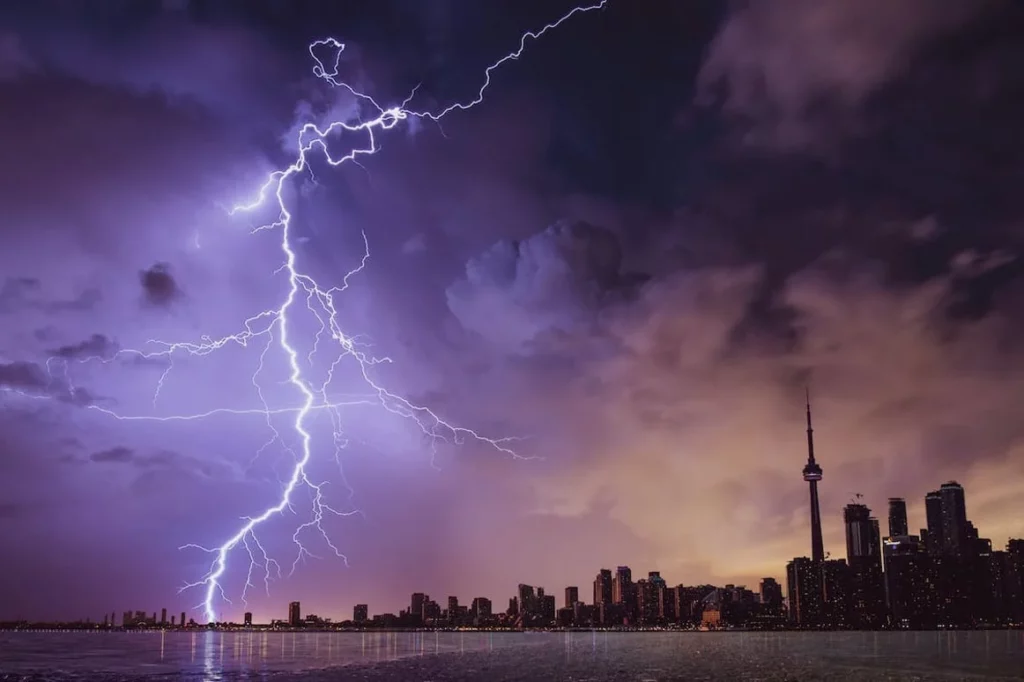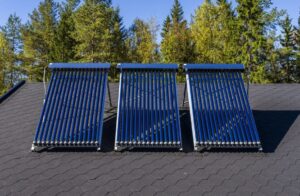Florida homeowners are grappling with growing concern as lightning strikes wreak havoc on their properties, causing significant damage and financial losses. The Sunshine State’s unique weather patterns make it particularly susceptible to thunderstorms, leading to an alarming surge in lightning-related incidents.
Florida, renowned for its tropical climate and frequent thunderstorms, experiences more lightning strikes than any other state in the United States. According to the National Weather Service, an estimated 2,000 thunderstorms occur over Florida annually, with an average of 1.4 million lightning bolts illuminating the state’s skies each year.
These powerful lightning strikes pose a serious threat to the state’s homeowners, as they can result in devastating consequences. Common lightning-related damages include electrical system failures, fires, structural damage, and destruction of electronic devices.
One of the major causes of concern is the risk of electrical system failure. Lightning strikes can create power surges that overload electrical circuits, damaging appliances, heating, ventilation, and air conditioning (HVAC) systems, and other household electronics. These electrical surges can also cause electrical fires, further exacerbating the damage and putting residents’ safety at risk.
Structural damage is another significant issue faced by Florida homeowners. Lightning strikes can damage roofs, chimneys, and other parts of the house, leading to leaks, water damage, and compromised structural integrity. The repair costs for such damages can be substantial, leaving homeowners burdened with hefty bills.
Additionally, the loss of electronic devices due to lightning strikes is a growing concern. With the increasing dependence on technology in everyday life, homeowners face the risk of losing valuable electronics like televisions, computers, refrigerators, and home security systems. Replacing these devices can be a significant financial setback for affected families.
To mitigate the impact of lightning strikes, homeowners are advised to take necessary precautions. Installing lightning rods, surge protectors, and grounding systems can help divert the electrical current away from the house and protect electronic devices from power surges. Regular maintenance of roofs, including checking for loose shingles or damaged areas, is crucial to prevent water leaks caused by lightning strikes.
Insurance coverage is also a vital aspect for homeowners to consider. Reviewing and updating insurance policies to ensure adequate coverage against lightning damage is recommended. Homeowners should consult with their insurance providers to understand the terms and conditions related to lightning-related claims and seek professional advice to assess their specific risks.
Furthermore, public awareness campaigns and educational programs can play a crucial role in informing homeowners about the risks associated with lightning strikes and the preventive measures they can take. Collaborative efforts involving local government agencies, weather services, and community organizations can help disseminate information and promote preparedness among residents.
Florida homeowners continue to grapple with the devastating effects of lightning strikes. As the frequency and intensity of thunderstorms remain high, it is crucial for residents to stay vigilant, take necessary precautions, and ensure adequate insurance coverage to protect their homes and possessions from lightning-related damage. By being proactive and informed, homeowners can better safeguard their properties against the wrath of nature’s electrical fury.




